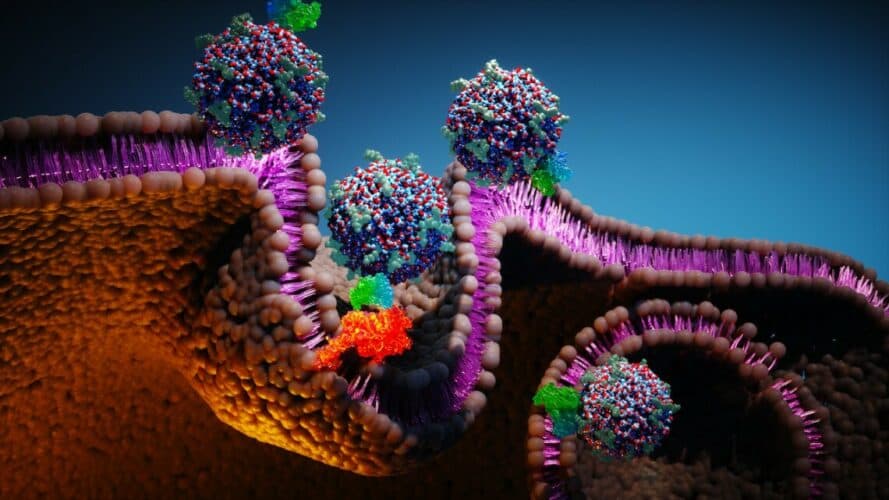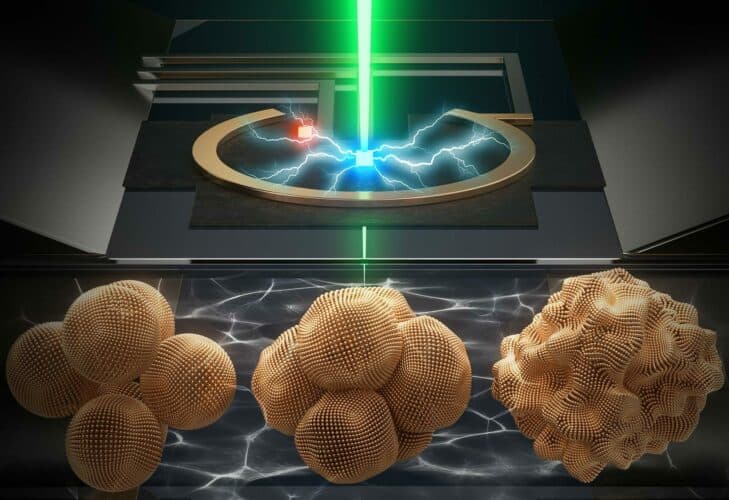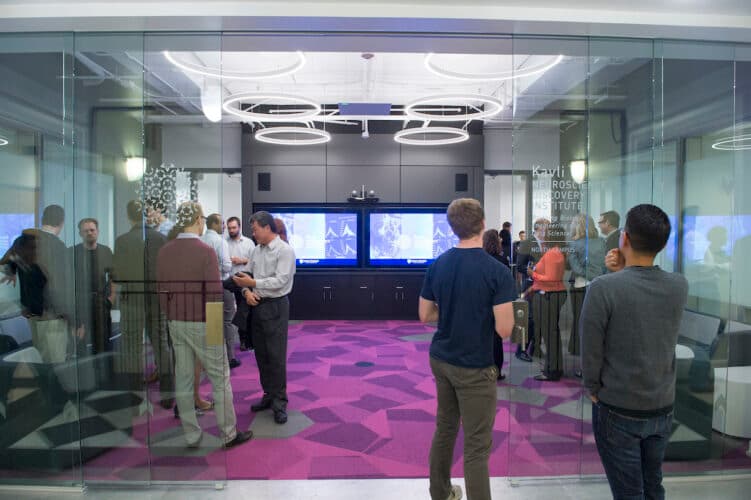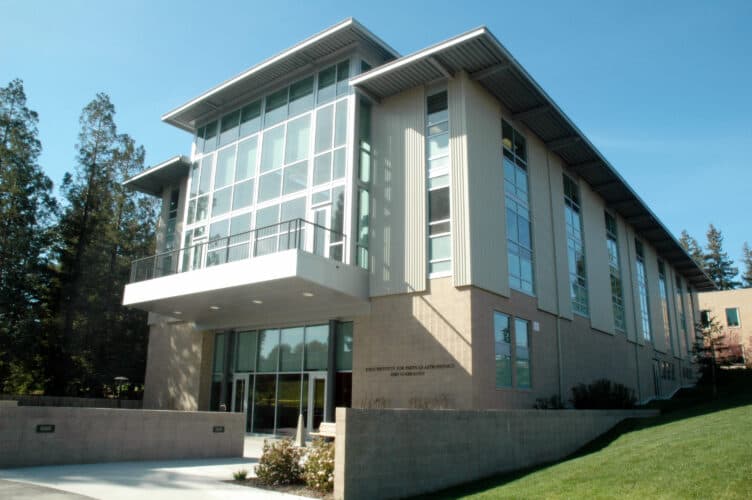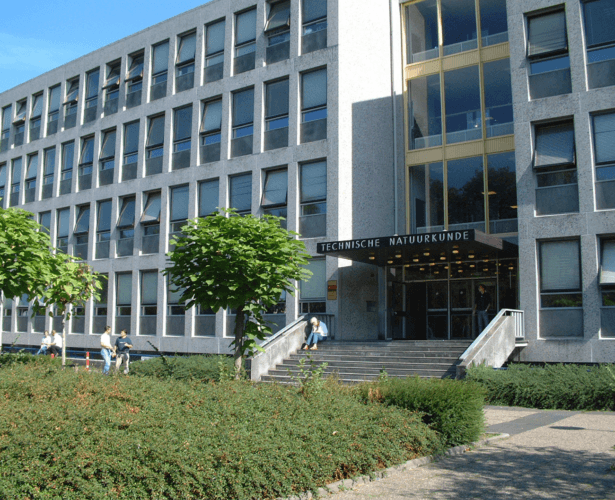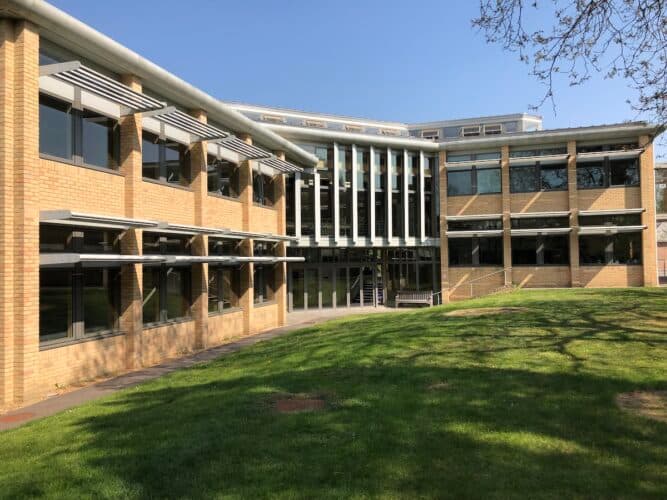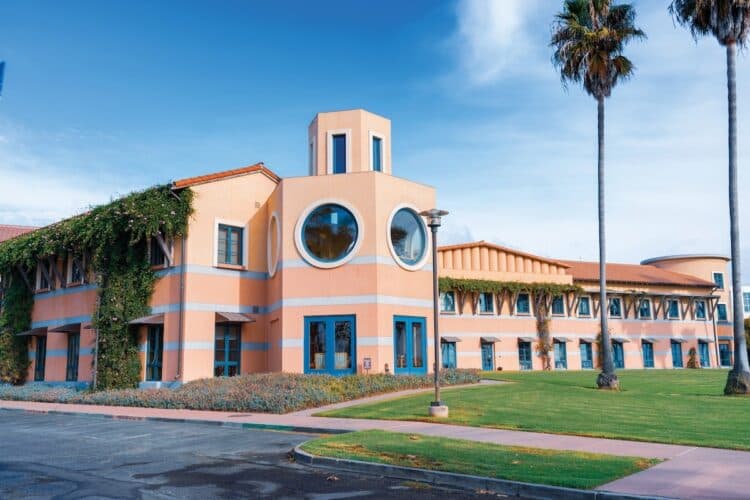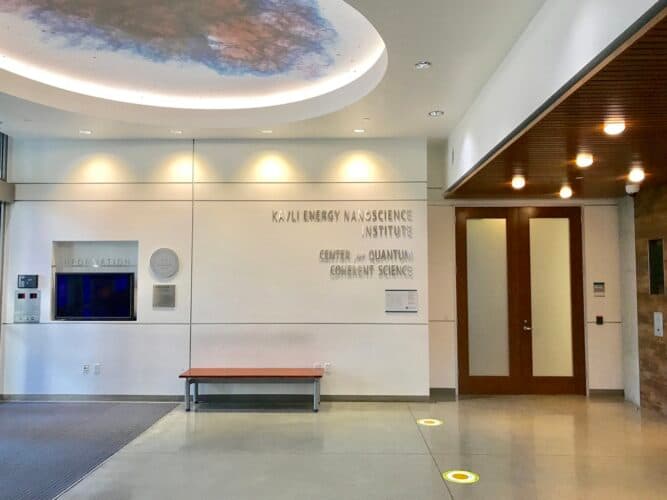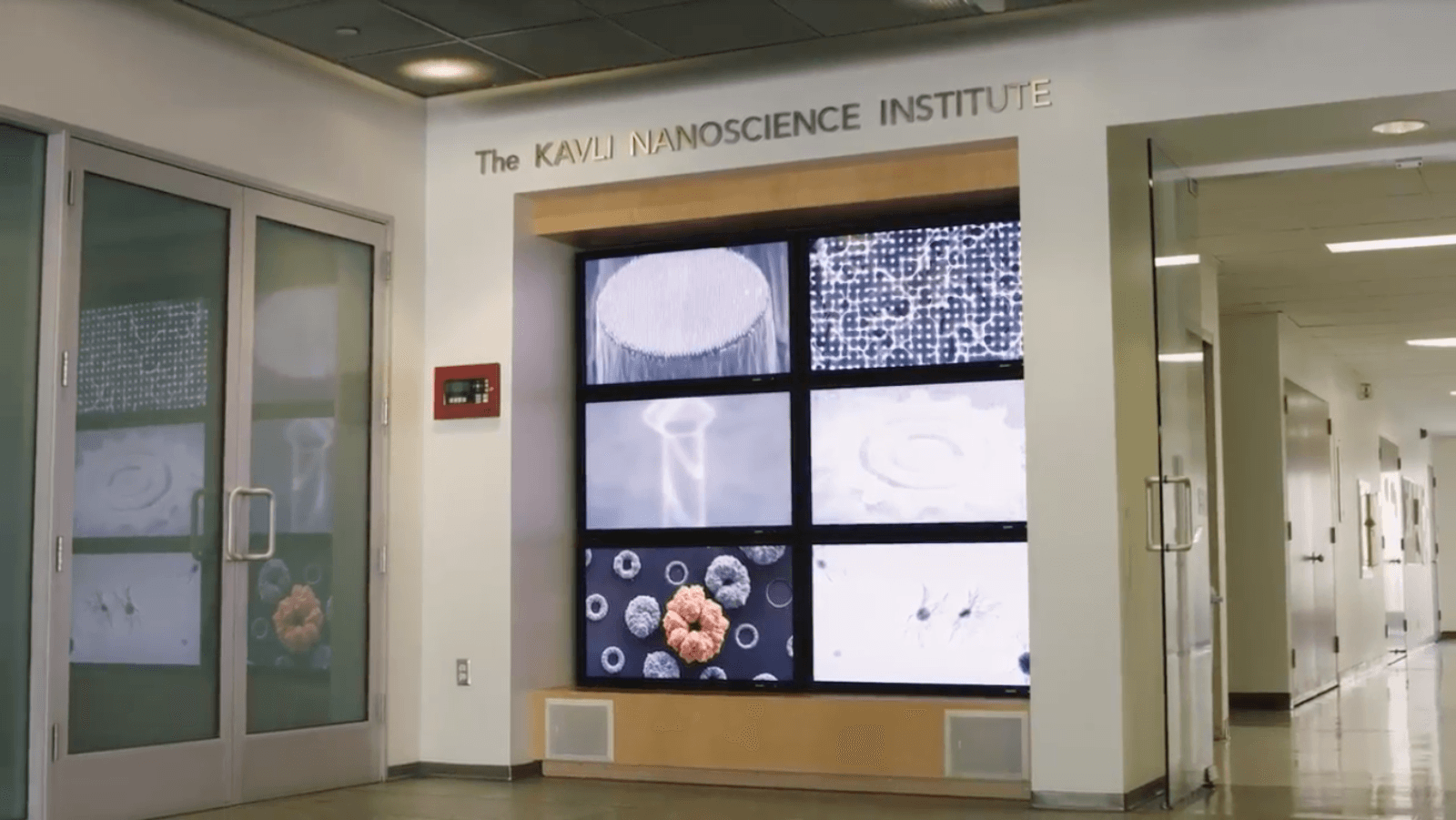
California Institute of TechnologyKavli Nanoscience Institute
Transcending traditional disciplines and working at the frontiers of science and engineering
Building on Caltech’s history as a pioneering institution in research at the nanoscale, the Kavli Nanoscience Institute (KNI) studies the potential application of nanoscience to fields such as biotechnology and photonics and is home to an advanced nanofabrication facility which helps support this research. In all its areas of focus, it looks beyond individual nanoscale structures and devices toward the goal of integrating them into nanosystems.
FOUNDED 2003
Leadership
AREAS OF INQUIRY
- NANOBIOTECHNOLOGY: This field unites state-of-the-art engineered nanodevices with the evolved “machinery” of living systems. KNI is exploring the potential of extremely small-scale technology to analyze biological processes such as gene and protein expression. It also focuses on systems biology, the study of the enormously complex biochemical networks underlying all life. It is developing tools to help scientists observe and understand the processes of these networks in real time, at the level of individual cells.
- NANOPHOTONICS: As the technology of light-based communication advances into ever-smaller realms, KNI is at the forefront with its research into nano- and quantum scale photonic structures and devices. Of particular interest are new “mesophotonic” materials and photonic crystals. Engineered at scales down to a wavelength of light, such nanostructures offer the potential of chip-sized systems that will greatly boost the power of computers and telecommunications. KNI is using precise lithography and fabrication methods to develop early prototypes for next-generation optical and superconducting circuits.
- INTEGRATION: The main thrust of nanoscience so far has been downward in scale -- toward discovering and exploiting the properties of individual devices and structures. But KNI believes that this discrete nanotechnology will not reach its full potential without large-scale integration. The institute aims to develop new tools and techniques, not commonly found in a university research setting, to advance the science of nanosystems.
KNI Laboratory
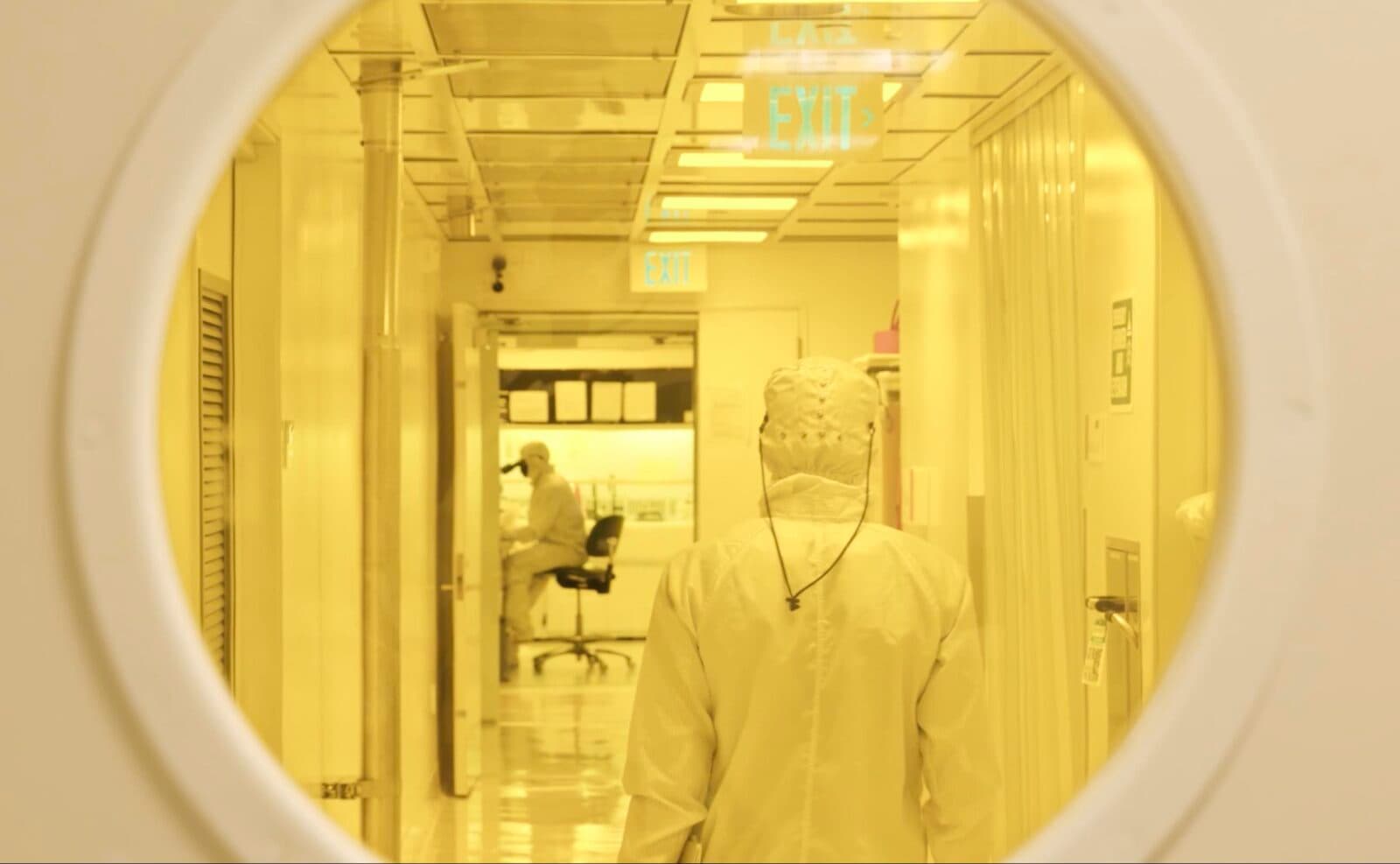
Nanoscience
Q&A with Andrei Faraon, director of the Kavli Nanoscience Institute at Caltech
Jan 13, 2026
Nanoscience Science Spotlights
At Caltech, the science of the small has a big moment
Mar 12, 2024
Nanoscience Research Highlights
Research Highlights from Kavli Nanoscience Institutes
Apr 11, 2023
Nanoscience Research Highlights
Research highlights from Kavli Nanoscience Institutes
Mar 22, 2023
More Institutes
At Kavli Institutes around the world, scientists explore the frontiers of science in the fields of astrophysics, nanoscience, neuroscience and theoretical physics.
See all institutesNeuroscience
Rockefeller University
Neuroscience
Yale University
Neuroscience
Johns Hopkins University
Astrophysics
University of Chicago
Massachusetts Institute of Technology
Stanford University
Nanoscience
University of Oxford
Neuroscience
Norwegian University of Science and Technology
Neuroscience
Columbia University
Neuroscience
University of California, San Francisco
Nanoscience
Delft University of Technology, Netherlands
Theoretical Physics
University of Chinese Academy of Sciences
Astrophysics
Peking University-Beijing
Astrophysics
University of Cambridge
Cornell University
Neuroscience
University of California, San Diego, and the Salk Institute for Biological Studies
University of Tokyo
Theoretical Physics
University of California, Santa Barbara
Nanoscience
University of California, Berkeley




